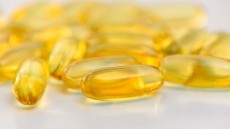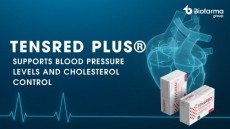Unilever plucks UK soy drink from shelves
little more than 18 months on market after consumers failed to
connect with its health messaging.
The product that came in several soy protein-infused juice flavours and was marketed on multiple health benefits, failed to meet performance "benchmarks", Unilever said, despite notching a respectable £10.3m (€12.95m) in sales in its first year.
"It was decided that the money required to raise that awareness sufficiently would be better spent elsewhere," the company said.
It spent €15.1m in a multimedia campaign that included prime time television advertising when it launched the brand in May, 2006, making it Unilever's first brand launch in 12 years.
Brand investment Unilever spokesperson Helen Park told NutraIngredients.com that despite 50 per cent of AdeZ's sales coming from "incremental" (new) buyers to the category, as well as an industry standard 40 per cent repeat buying, Unilever decided only a substantial investment in the brand could drive sales growth, which it decided against.
"It wasn't a complete disaster but the company decided consumer interest in the category was not as high as expected," she said.
"Awareness of the benefits of soy is spreading more slowly than anticipated and has not fuelled the growth required to meet the internal benchmarks which were set for AdeZ." Gerald Klein Essink of Dutch-based soy market analyst PROSOY Research & Strategy, said Adez failed to meet long-term consumer needs.
"The fact it was tasty wasn't enough," he said.
"Consumers wanted more but it wasn't clear in their minds what that more was - to the level Unilever was expecting anyway.
Unilever struggled to explain its benefits."
He said soy milk in both ambient and chilled forms was performing better in the UK because the category's premise was more simple - as an alternative to dairy milk with cholesterol-lowering potential.
The fact many consumers still associated soy with poor taste and texture despite dramatic formulation progress, also contributed to Adez's demise, he said, while noting that AdeZ was marketed as soy-infused juice rather than a juice-infused soy drink.
Market analyst Organic Monitor said it expected Unilever to show more support for the brand and criticised its product positioning.
"Although the soy drinks market remains crowded, the withdrawal of the AdeZ brand comes as a surprise," it said.
"The multinational was quoted as 'throwing the kitchen sink' into the AdeZ brand; indeed, initial high sales have been marketing-driven."
It added: "However, consumer acceptance is believed to have been low due to product positioning.
AdeZ was launched to capitalise on high growth in the dairy alternative and functional beverage market, however it was not successfully positioned in either market."
"Whilst established brands like Alpro and Innocent have gone from strength to strength, AdeZ struggled to find its identity in a sophisticated market.
Indeed, will AdeZ be remembered as a failure of a soya drink or juice smoothie?"
Business as usual Adez, which has been a successful brand for Unilever in South American markets for more than 20 years, remains on the market in Ireland and the Netherlands.
Gerbert van Genderen Stort, senior press officer for Unilever in the Netherlands, said Dutch consumers had responded positively to the product since it was launched there in March in one litre (€1.99) and 250ml (€1.60) versions.
But he wouldn't reveal sales figures.
It had won "2008 Product of the Year" for milk and soy-based products at a major consumer products show, he said.
"The product has met our expectation and we are looking at developing some new flavours this year," he said.
"Unilever is also looking at other European markets in which to launch the product."
AdeZ in the UK AdeZ was also fortified with vitamin and minerals, was available in three flavours but did not employ the UK-approved cholesterol-lowering health claim, as its 2.7g of soy per 250ml was too low to meet the claim's requirements.
On-pack messaging noted its high calcium content and low calorie count (one third the calories of regular juices) and it was promoted as a way for consumers to get one of their daily recommended five servings of fruits and vegetables.











